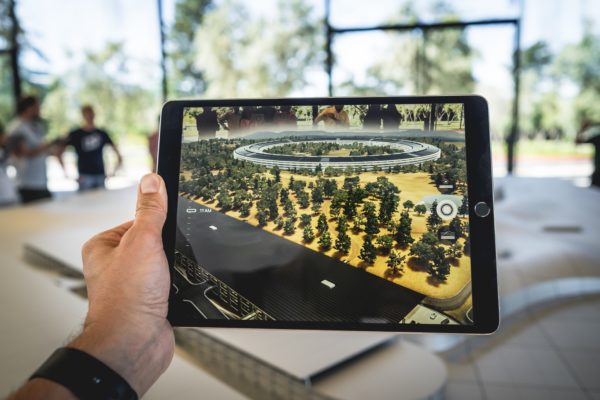Infrastructure and digital health research are set for a strategic boost, with two multidisciplinary teams receiving internal, Deakin University funds.
Experts across Deakin University will come together to tackle complex problems as part of two cross-disciplinary teams receiving substantial support from Deakin’s new Cross Collaboration scheme, recently renamed the Research Network Scheme.
One team will help transform Australia’s approach to infrastructure through a systems perspective, while the other will create digital solutions to solve global health problems, such as ageing populations.
The DU Research Network Scheme aims to unite University expertise to tackle complex problems from many fronts in a strategic, co-ordinated manner. The two projects will receive Phase 2 funding to take their strategies to the next stage.
Applications are currently being sought for Round 2 (Stage 1), with up to $10,000 available for successful applicants. Expressions of interest close: 10:00am, Monday 11 September, 2017. Guidelines, deadlines and relevant forms.
Infrastructure Futures
Core team members: Prof Carol Boyle, School of Engineering; Prof Douglas Creighton, IISRI;
Dr David Halliwell, CeRRF; Dr Adrian Panow, Deakin Energy; Dr Zahra Hosseinifard, School of Business; and Melissa Chan, Architecture and Built Environment.
The Infrastructure Futures team seeks to position Deakin as a leader in infrastructure systems research – delivering advanced insights, methods and tools to revolutionise decision making on infrastructure systems and contribute to a more sustainable society.
Project leader Professor Carol Boyle said that infrastructure in Australia is undergoing significant change and is critical to Australia’s $1.77 trillion economy.
“Infrastructure systems are increasingly complex and interdependent, but decision-making is often made in isolation. We need new, revolutionary pathways,” she said.
[testimonial_text]Poor infrastructure decision-making effects productivity, public health and sustainability. By taking a systems approach, we are seeking to improve infrastructure decision-making in Australia.[/testimonial_text]
[testimonial_picture name=”Professor Carol Boyle” details=”Infrastructure Futures Project Leader”]
 [/testimonial_picture]
[/testimonial_picture]With strong industry support, the team will focus on a pilot project aiming to streamline energy-water systems. Coliban Water and Wannon Water are providing funding support and a number of other organisations, including Barwon Water, have expressed interest in supporting the research. The project will involve testing of infrastructure systems modelling and will support two post-doctoral staff.
“We will incorporate social, environmental, economic and political dimensions to understand how infrastructure system decision-making influences other systems,” explained Professor Boyle.
“We will leverage funding to develop a leading research program that will change how infrastructure is managed for the future.
“This is the beginning of long-term industry engagement and a long-term research program with invested stakeholders – identifying aims, research pathways, outcomes and deliverables that will also support Deakin staff and student development.
“It will establish an ecosystem of infrastructure capabilities at Deakin, underpinning a proposed Masters in Infrastructure Systems.”
Digital Health Futures
Core team members: Professor John Grundy (Digital Health Futures), Professor Trish Livingston (Faculty of Health), Professor Nilmini Wickramasinghe (Health Informatics Management).
The Digital Health Futures team aims to position Deakin as a global leader in solving global health challenges. It will provide a one-stop-shop to expertise and university-wide enablement – focussing on health service delivery through digital solutions.
The team will lead strategy, find new external partners / funding opportunities, and exploit Deakin’s technological expertise to create health web sites, apps, lightweight devices and other digital solutions.
As one example, researchers from several research centres and groups will work on developing effective, affordable, scalable and safe in-home and in-residential care solutions for ageing populations that use sensor, interaction and integration technologies – creating “smart home”-focused assisted living.
Project leader Professor John Grundy said the team will help Deakin fill a gap nationally and internationally.
[testimonial_text]We are seeking to create innovative, personalised, integrated health technologies that tackle global themes, such as supporting dignity, empowerment, enhanced living and quality of life outcomes for the communities we serve.[/testimonial_text]
[testimonial_picture name=”Professor John Grundy” details=”Digital Health Futures Project Leader”]
 [/testimonial_picture]
[/testimonial_picture]“Currently, there are around 90 health tech projects being undertaken at Deakin, but we need to improve co-ordination through closer relationships between Deakin’s Research Institutes and Strategic Research Centres, so we can capitalise on the many relationships between Deakin and its external partners and health service users,” he said.
“The new Institute for Healthcare Transformation and ARC Digital Enhanced Living Hub will play central co-ordinating roles in this.
“We will provide targeted, scalable, strategic health technology and research solutions beyond individual groups.”
Published by Deakin Research on 28 August 2017



